8 ideas for hobbies that are cheap and easy to try at home this winter
Start a new hobby this winter without breaking your budget with these cheap ideas for hobbies that are easy to try and can be done alone, or in a group
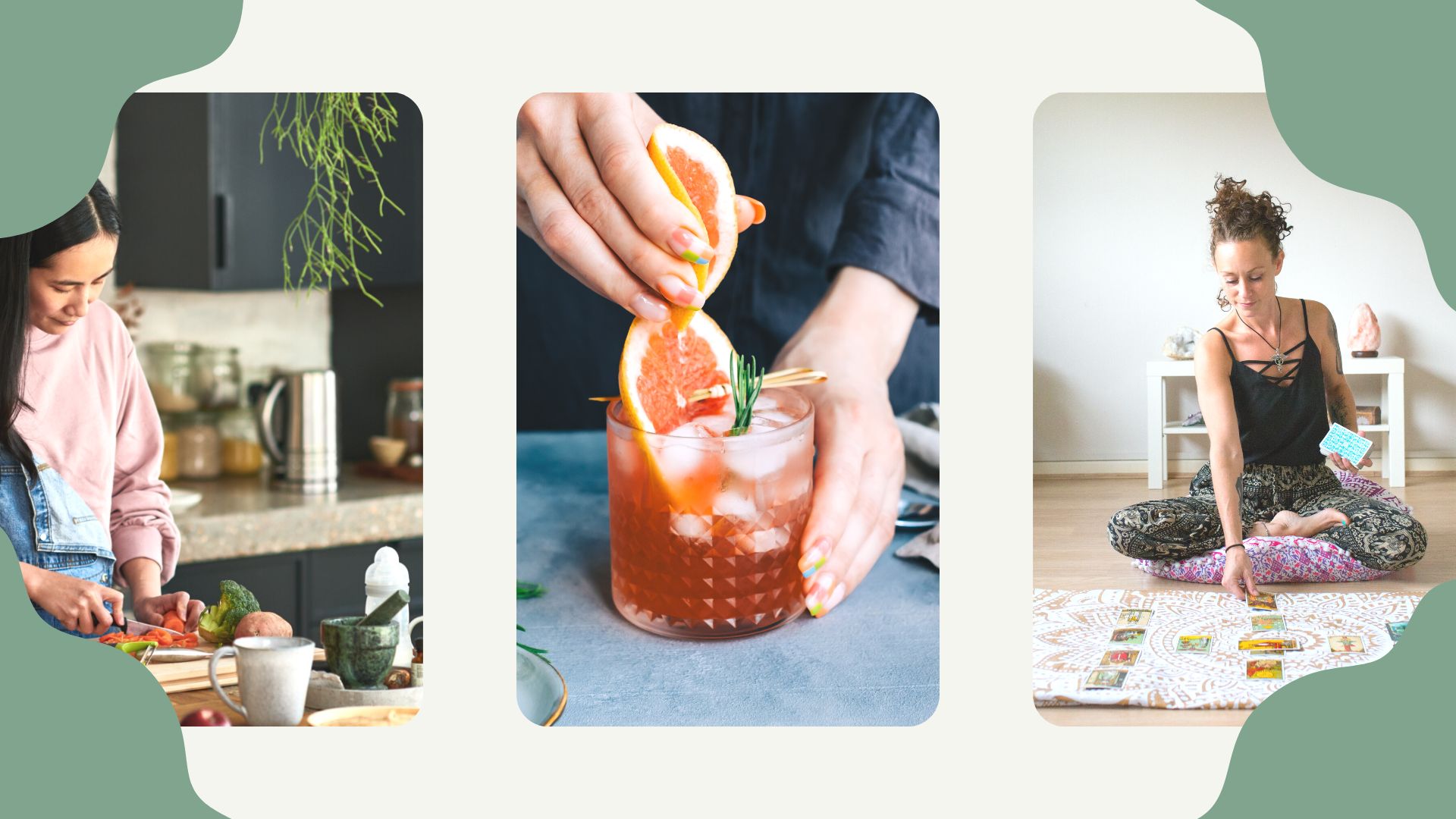

If you've been looking for ideas for hobbies that are cheap and easy to try at home this winter, when the weather is cold outside and budgets are tight, then you've come to the right place. By speaking to experts and those who found that learning a new skill at home had a positive effect on both their wellbeing and their bank balance, we've compiled a list of suggestions of new, affordable and easy hobbies you can try.
The benefits of hobbies for women and men have been widely praised (check out this research by Utah State University for example), but just because we know having a hobby could be good for us, doesn't make starting a new one any easier. Paying for classes, courses or investing in the equipment needed for certain hobbies (like photography, or pottery for example) can be expensive.
However, there are cheap hobbies out there that don't require expensive start up costs, nor a commitment to attending in person. In fact, you can try all the ideas for hobbies on our list in your own home, in your own time...
8 ideas for hobbies that are cheap and easy to try at home
1. Upcycling
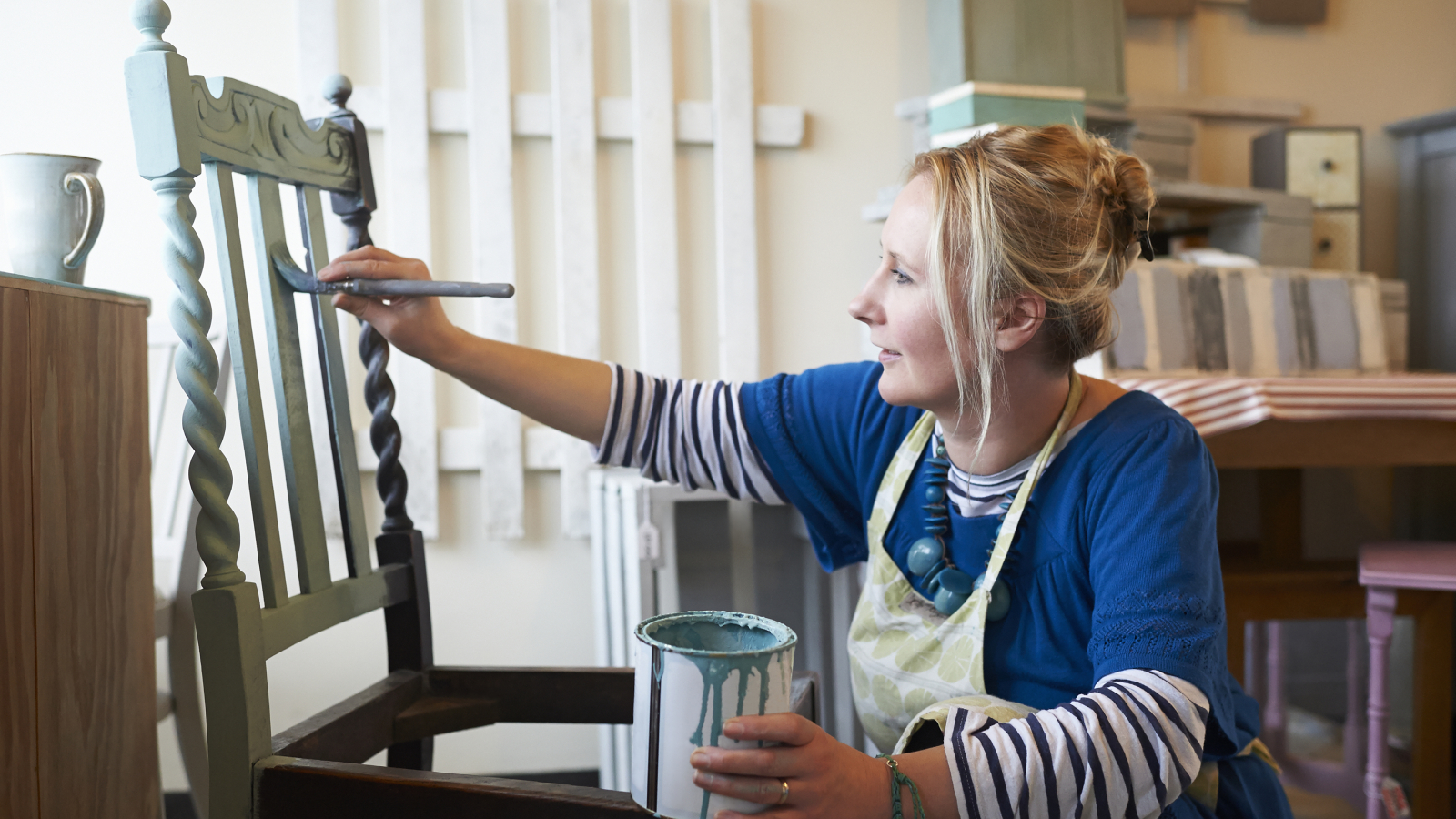
A hobby that is beneficial to both your bank balance and the environment, upcycling means transforming old household items into something new using DIY skills. Examples include converting old crates, ladders or the backs of chairs into stylish wall mounts, or even something as simple as using old wine bottles or kitchen jars as vases for a kitsch way to store fresh or dried flowers delivered to your home or picked from your garden.
Amy Fretwell found that upcycling things that otherwise might have been thrown away turned into a fulfilling hobby during the pandemic. "After a big clear out, there were plenty of old pieces of furniture that I would have otherwise thrown away, but after watching some tutorials online I got plenty of ideas on how to make use of them."
How to get started: The first step is to determine which items you already own but no longer use - perhaps items that are languishing in the garage or attic - so you know what you have to work with.
One of the most common forms of upcycling is painting or upholstering old furniture, and there are plenty of materials online that can help you learn the basics, such as this beginner's guide to furniture upholstering. Masterclass also have a useful guide on how to upcycle furniture.
Sign up for the woman&home newsletter
Sign up to our free daily email for the latest royal and entertainment news, interesting opinion, expert advice on styling and beauty trends, and no-nonsense guides to the health and wellness questions you want answered.
2. Meditation
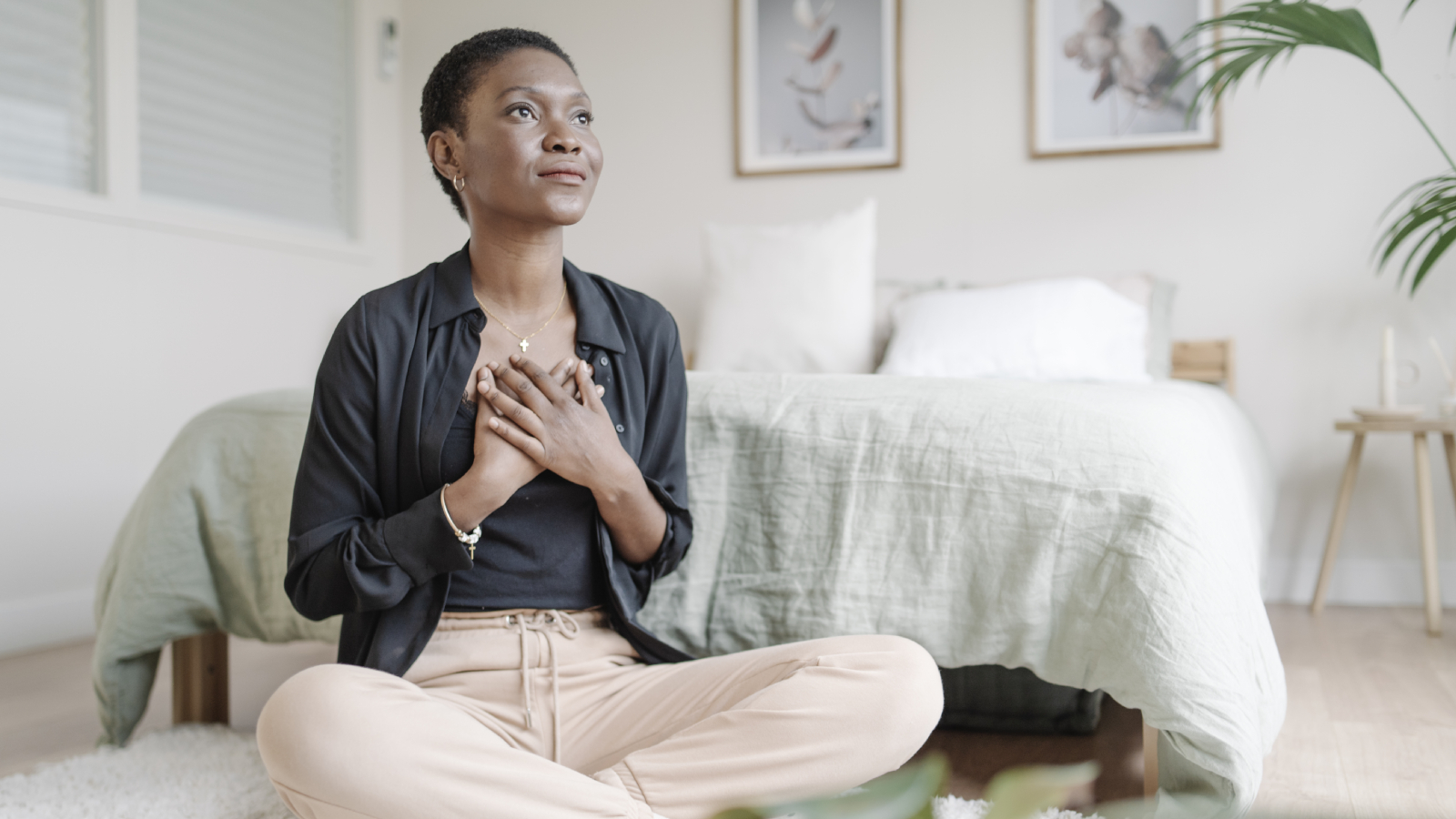
Meditation is part of a more mindful way of life and learning how to meditate is one of the best hobbies for relaxing. Like building muscles in the gym, the mind is a muscle that we often neglect, but committing to just five minutes of meditation a day can be incredibly beneficial.
"Let’s think of it like this: when you’re feeling down, how much time do you need to spend with your best friend before you feel better? Chances are the longer, the better," explains Danielle Wills, yoga and meditation coach for WithU app. "Meditation is like that - it’s hanging out with yourself. It’s getting to know yourself better, getting to actually like yourself. It’s making friends with your thoughts and feelings."
For part-time meditation teacher Ciara McGinley, an interest in meditation became a new career path. "I was first introduced to meditation and mindfulness at university. It was a new hobby for me because I didn’t play a sport and wasn’t part of any clubs, so I turned to meditation to combat exam stress and break up my class days.
"Years later, after developing my own mindfulness routine and experimenting with everything from meditation to yoga, breathwork, forest bathing and mindful walking, I decided to train to become a qualified meditation practitioner so I could introduce others the practice and help them build a life rooted in mindfulness."
How to get started: There are plenty of mindfulness apps available that will help you get started if you're new to meditation, such as Calm and Headspace. Balance, a meditation and sleep app, which has a free trail for the first year, offers a daily meditation challenge of as little as three minutes so you can get started at home. You could also try our guide to the best sleep-guided meditations to help you drift off and get better sleep.
Start by choosing a designated time of day to commit to a short meditation, as consistency is key. This could be right before bed, or first thing in the morning. Using a bullet journal, where you write, draw or doddle the thoughts or emotions you're feeling at the time, is another way to practice mindfulness daily. If you're not sure where to start, simply writing down three things you feel grateful for that day has been shown to reduce anxiety and stress.
3. Pickling
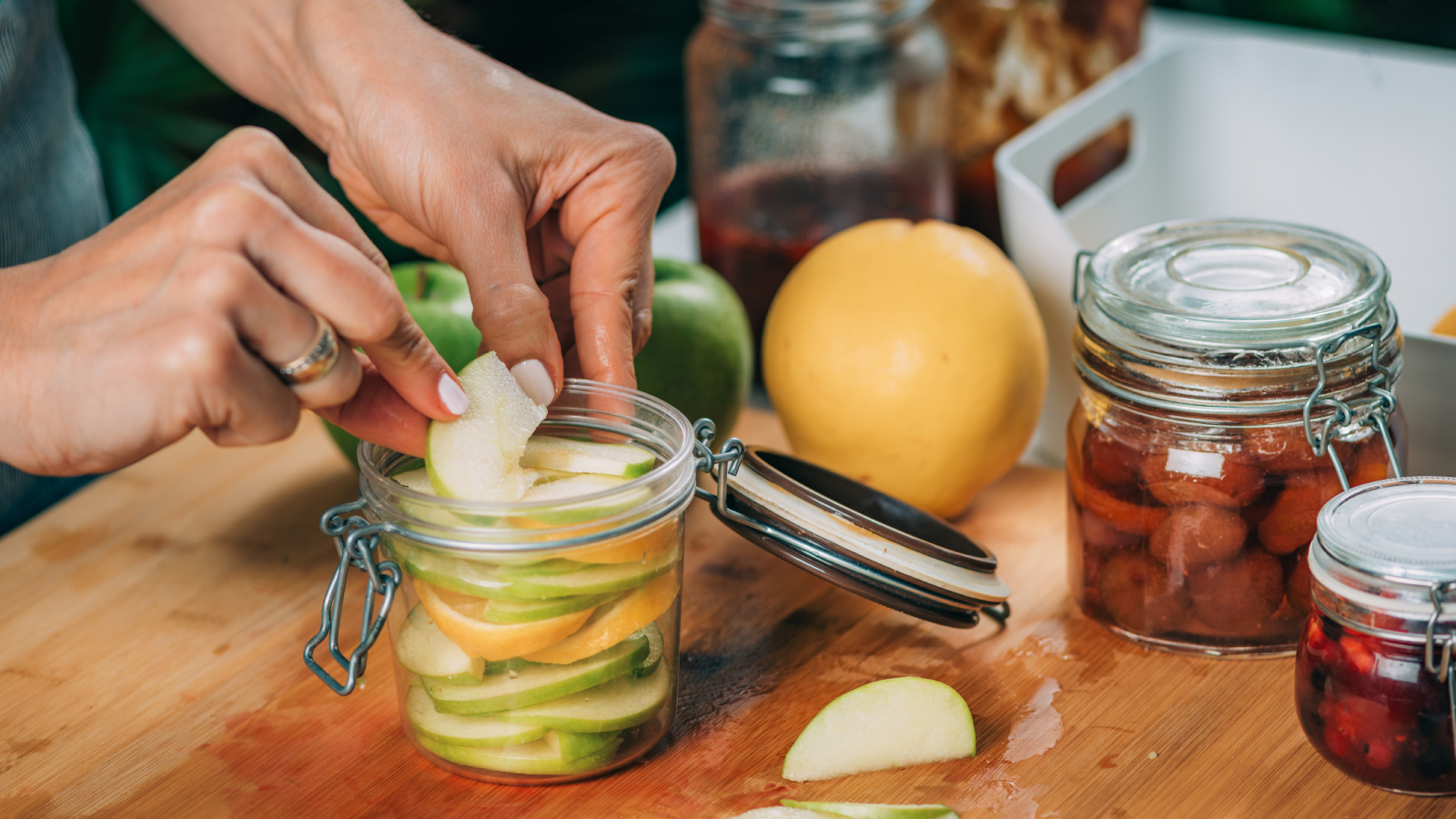
Making your own pickles from items in your fridge, such as cucumbers and carrots, is a great way to boost your gut health. As well as being good for gut health, pickling also goes hand in hand with the hobby of foraging and learning more about what foods we can use to make homemade pickles.
Homemade pickles also make a great gift, which can save money on birthdays or be given as a homemade Christmas food gift over the festive season.
Wild foods can be used for pickling and long-term storage, but it's important to do you research and make sure the foods you forage are safe to eat before you start. Our guide to foraging for foods should help.
How to get started: To get started, you'll just need your chosen foods, some jars with a well-fitting lid, salt and some good-quality vinegar. There are plenty of resources online that will help guide you through the process, such as this guide to pickling from the National Center for Home Food Preservation.
4. Tarot and Angel card readings
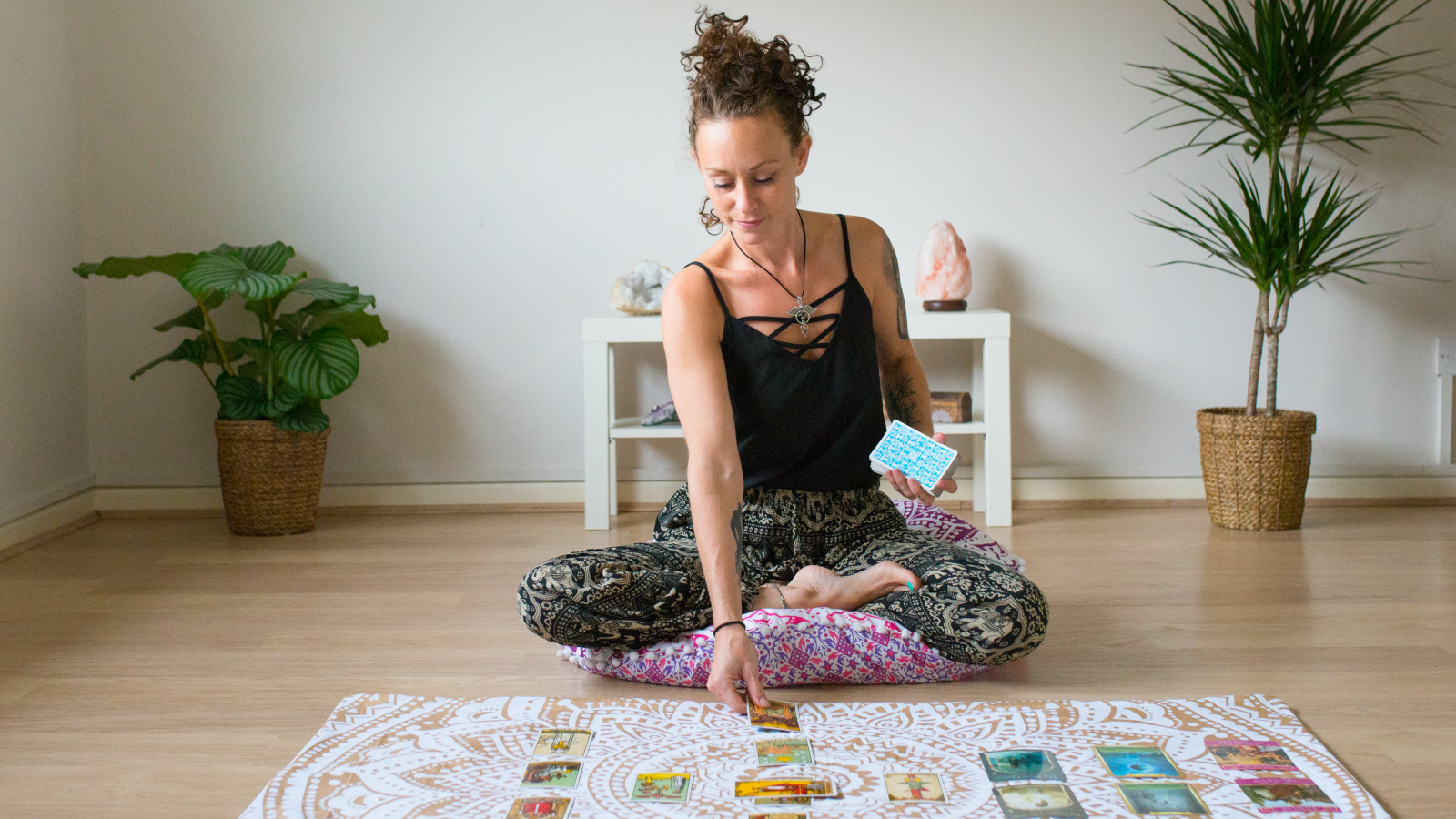
Reading tarot is an ancient ritual associated with witchcraft, but in recent years tarot cards have become much more mainstream, moving away from a way to predict the future and more as a tool for learning more about ourselves. Sales of tarot cards in the US have doubled in the past five years according to reporting from The Washington Post.
This is no surprise according to psychic and tarot expert Inbaal Honigman. "The rise in the popularity of spiritual practices in general, and divination in particular over the past two years is linked with the sense of loss and confusion during the pandemic," Inbaal explains.
"The Tarot is relatable, visually appealing, and deals with real life situations. The Tarot can be taught with relative ease, and is accessible to all, unlike say mediumship which takes a good amount of borne talent to master, or say astrology which can take forever to learn, what with all the maths that goes into it."
Angel or Oracle cards, which offer a more fluid approach to tarot reading, are another option for people to try at home. "Angel cards and oracle cards are more of a freestyle discipline, which can be altered to suit any preference and style. The Tarot is a more rigid system with 78 cards, four suits and traditional archetypes. Angel and oracle cards are generally intended to empower and reassure, whereas the Tarot informs."
How to get started: You'll need to purchase a pack of cards - whether that's Tarot, Angel or Oracle - and then use resources online to understand the meanings of each card.
"Newbies need to take it easy, and practice, practice, practice. Nobody will judge you for checking meanings in a book, and you will be more skilled tomorrow than you are today," Inbaal explains.
5. Mixology
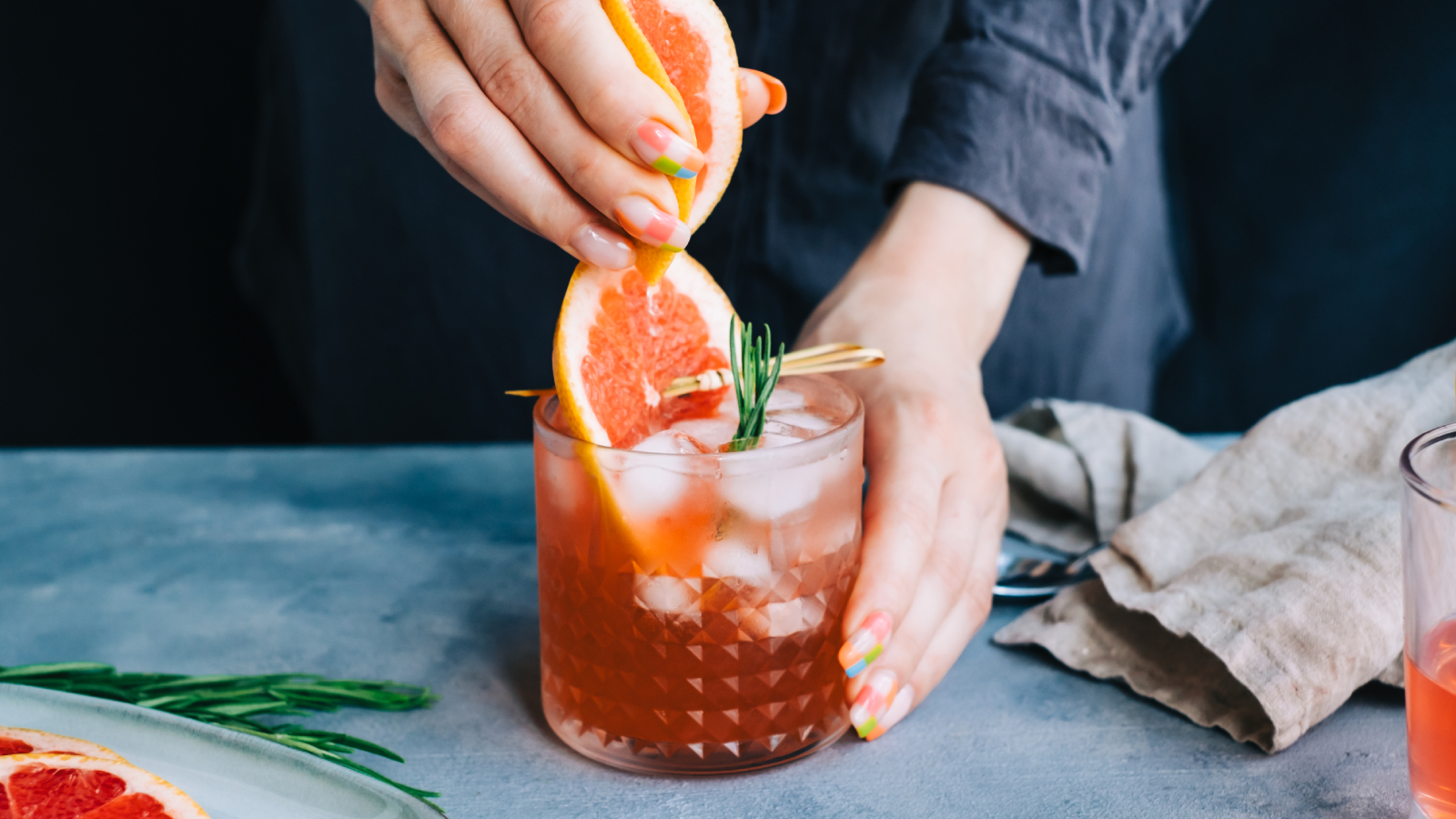
Hosting Christmas parties, dinners or drinks at home is a much cheaper alternative to eating out at the moment, and it's also a fun way to impress your guests with some homemade cocktails. Mixology is a trend that that is predicted to rise in popularity throughout the rest of 2022 and into next year.
"The cheapest hobbies can often be the most creative, because they’re more about engaging your imagination and mixology is a great place to start, with costs amounting to the ingredients you need for the cocktails and plenty of resources online," says consumer strategist and trends forecaster William Higham.
"With the rising trend of many of us drinking less, or not at all, you could also experiment with alcohol-free drinks, which make a great alternative to fizzy drinks for those who are choosing not to drink."
How to get started: It's worth investing in a basic cocktail kit with a shaker and a strainer to start this hobby at home, as well as researching the best cocktail recipes online. You'll then just need whatever ingredients are required for the cocktails - and plenty of practice.
7. Sewing
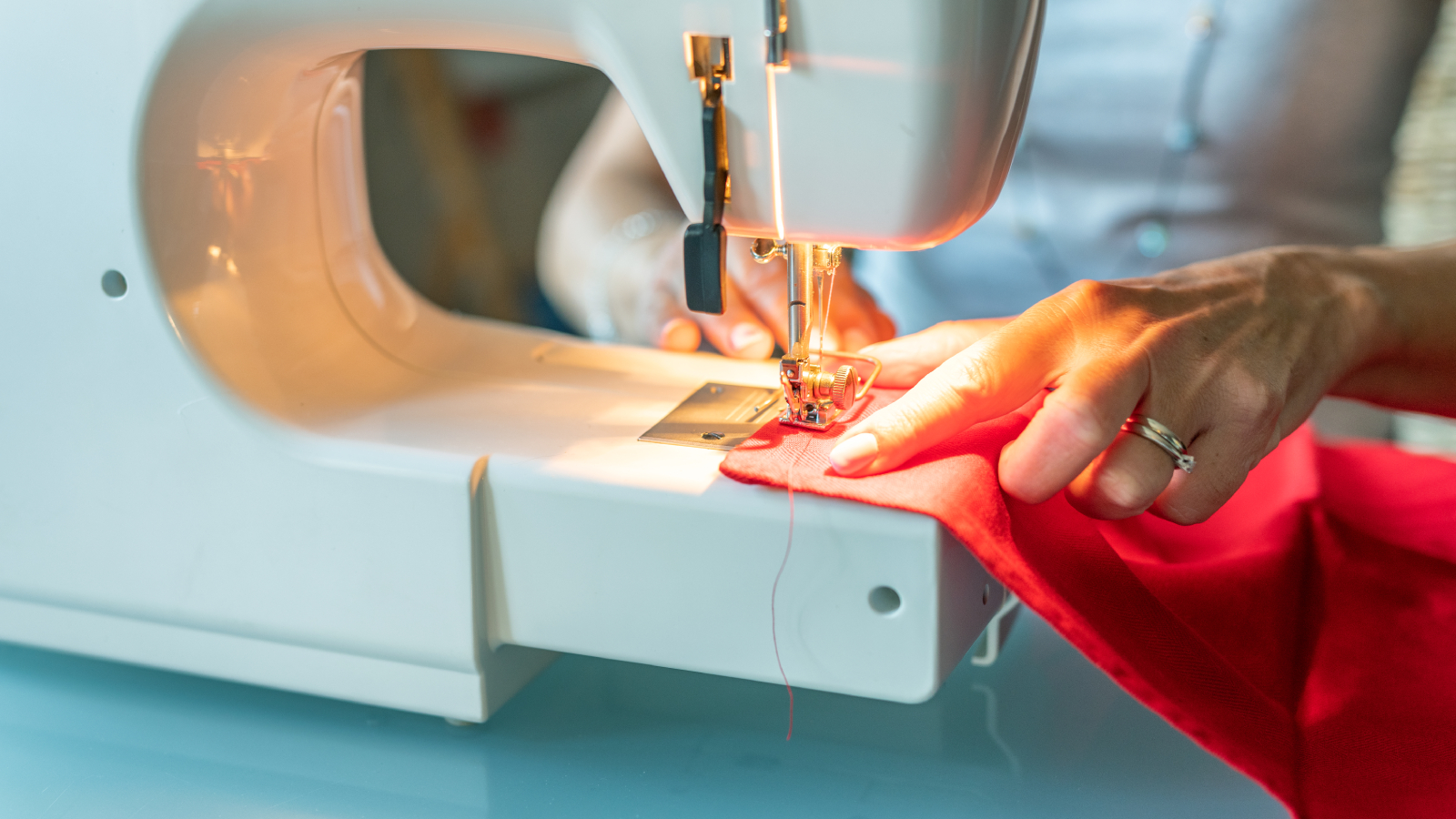
Stepping away from technology and learning a new skill that doesn't involve any screen time helps boosts mindfulness. "Activities such as sewing and embroidery are calming and mindful in an age full of technology," Higham explains. "And as we increasingly become more dependant on tech in our daily lives, I expect these kind of skills to boom in popularity as a chance to switch off, as well as a way to save on expensive repairs to clothing."
For Una Doyle, this hobby turned into a vintage venture. "I started learning to sew my own vintage-inspired clothes - 1940s & 1950s mainly - as a result of an image change - after I couldn't find the clothes I wanted to wear," she told us. "As a result, I ended up with some sewing-related clients; a fabric and haberdashery shop and a handmade clothes business! This weekend I attended the Dressmaker's Ball and I'm now going to be interviewing the organisers of it, who run sewing events and run a sewing pattern company."
How to get started: You can start with a simple needle and thread and there are also plenty of affordable embroidery kits online as an easier and cheaper alternative to making clothes.
While you don't need one of the best sewing machines to get started, but it certainly helps and it's a purchase that will pay dividends once you acquire the skills to make and fix your own clothing. The Fold Line has plenty of advice on how to learn the basics of sewing at home.
8. Cooking
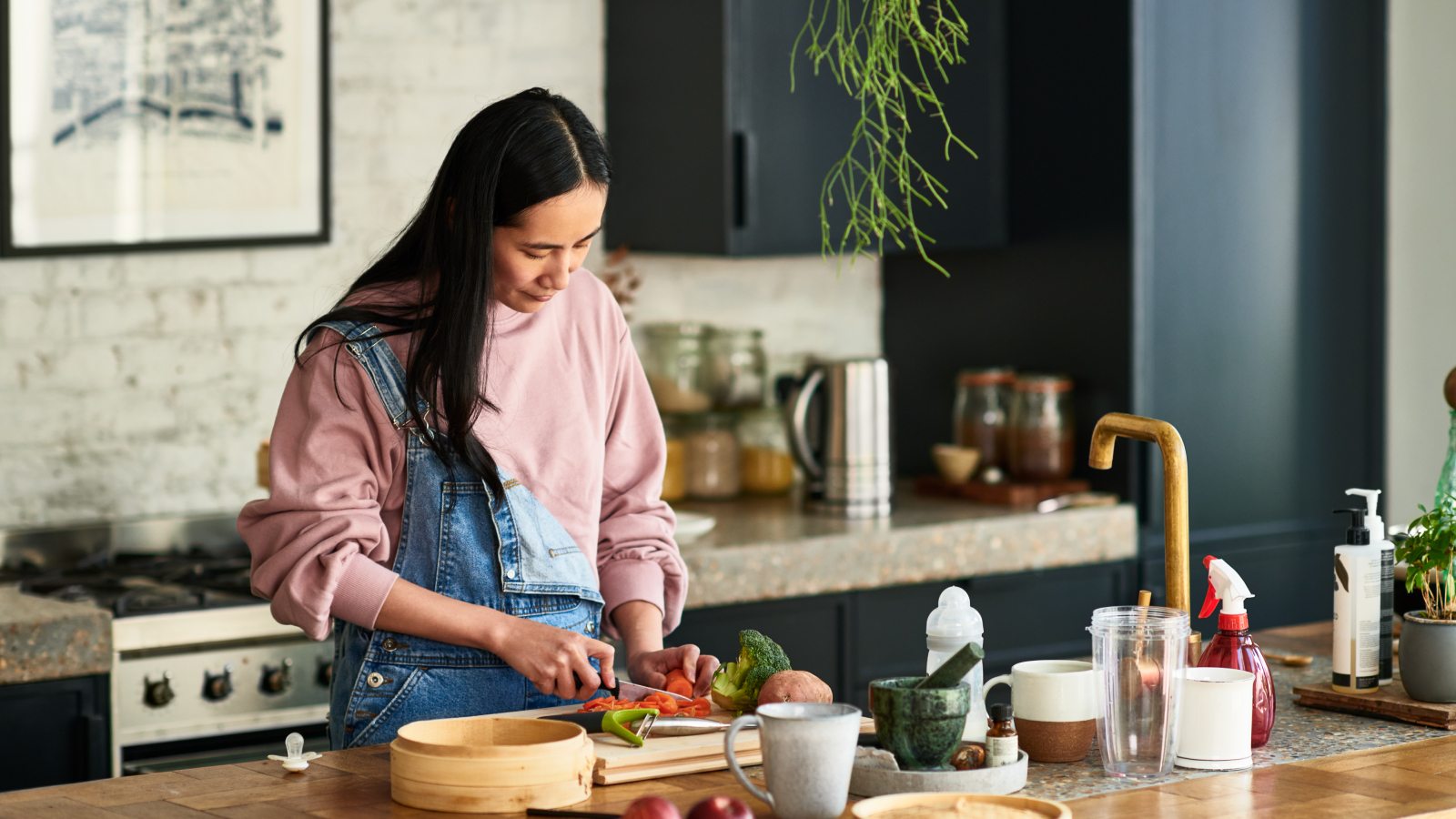
Cooking is something we inevitably do in some form on most days. But this chore can easily be turned into a satisfying hobby with some additional research. Delve into your best cookbooks and keep a recipe log with recipe cards or a simple notebook while you build up your skills in the kitchen. Like learning to make cocktails at home, having signature dishes that you know how to cook well invites the opportunity for cost-saving dinner parties, or entertaining friends for lunch, as opposed to eating out.
"My love of cooking stemmed from a trip to foodie destinations in France where I visited the local markets and spoke to the suppliers about the best way to use the ingredients I was purchasing," part-time chef Francesca McKay tells us. "This led me to set up my food and baking blog - The Wyldflours - which I update regularly with recipes and food photography. I'm even now thinking about launching a podcast."
How to get started: You don't need the best cookware or even a library of cookbooks to start, as all you really need are a few simple recipes to try and then good-quality ingredients. Investing in a recipe journal or recipe cards will help you keep track of your favorite recipes. Plus, make sure you take a look at the hundreds of recipes we have on woman&home, from Sunday lunch ideas to easy dessert recipes to make at home.
Why are hobbies that are cheap growing in popularity?
Expensive hobbies are out and cheap, easy hobbies are in, according to consumer strategist and trends forecaster William Higham. "Hobbies you can try at home are set to gain in popularity; not only are they typically quite cheap, but they can actually save you money. For example, learning how to paint or knit means you can create you own keepsake items and gift your talents, while learning practical skills such as carpentry could save you a fortune on hired help."
Higham, founder of Next Big Thing Consulting, explains, "Living through the pandemic gave many people both the time and the inclination to try new things at home. And it made many of us realise that there could – and should - be more to our lives than our job.
"Hobbies definitely don’t need to be expensive to be worthwhile. In fact, hobbies can prove an increasingly popular low cost alternative to leisure activities like expensive holidays abroad, theatre or movie trips and meals out."
Lauren is the former Deputy Digital Editor at woman&home and became a journalist mainly because she enjoys being nosy. With a background in features journalism, Lauren worked on the woman&home brand for four years before going freelance. Before woman&home Lauren worked across a variety of women's lifestyle titles, including GoodTo, Woman's Own, and Woman magazine.
-
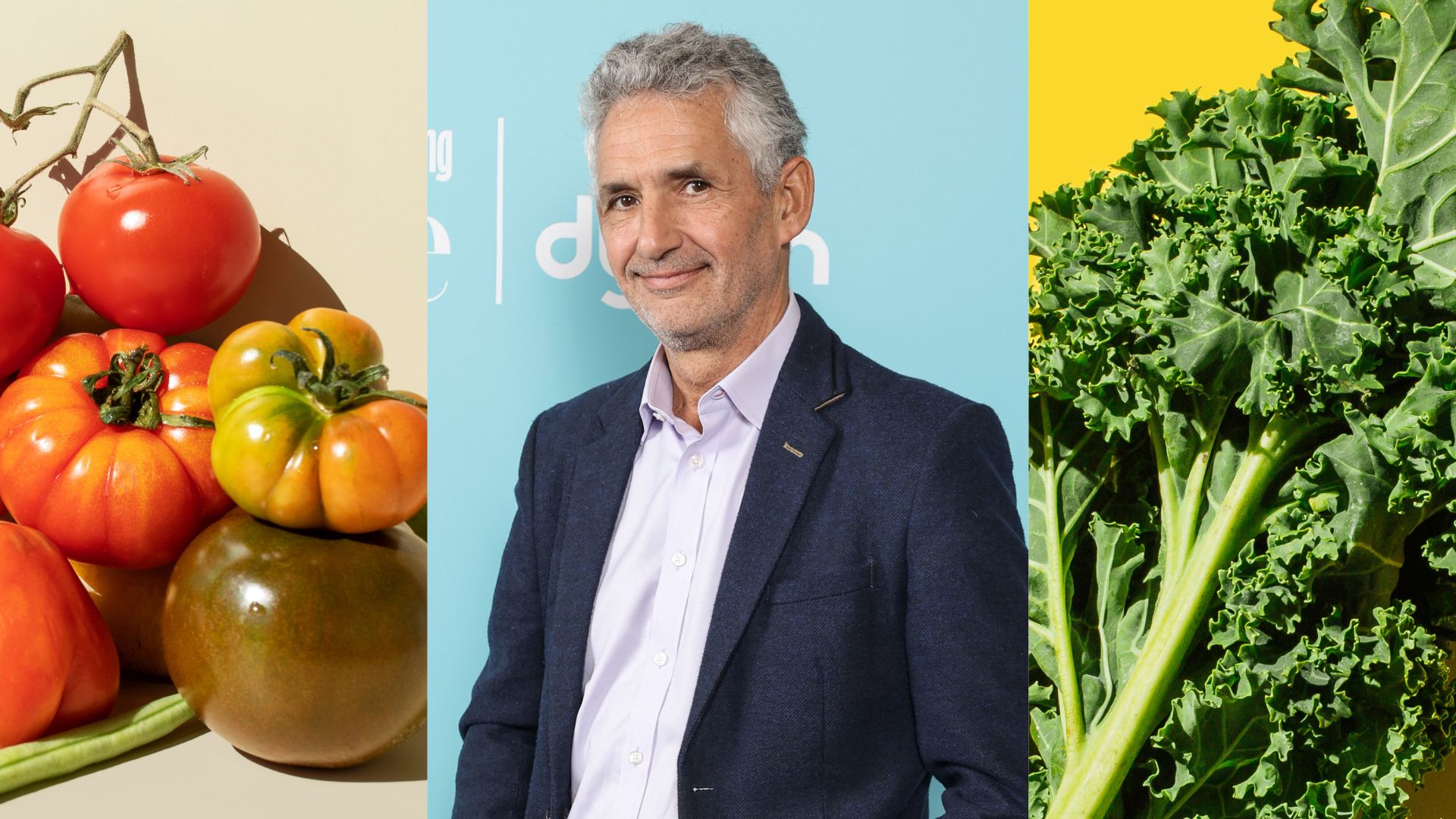 All the lessons we've learned from Professor Tim Spector on optimising your health and wellbeing
All the lessons we've learned from Professor Tim Spector on optimising your health and wellbeingIf anyone's qualified to give us lessons on how to eat better, it's Professor Tim Spector - and these are his best lessons
By Grace Walsh Published
-
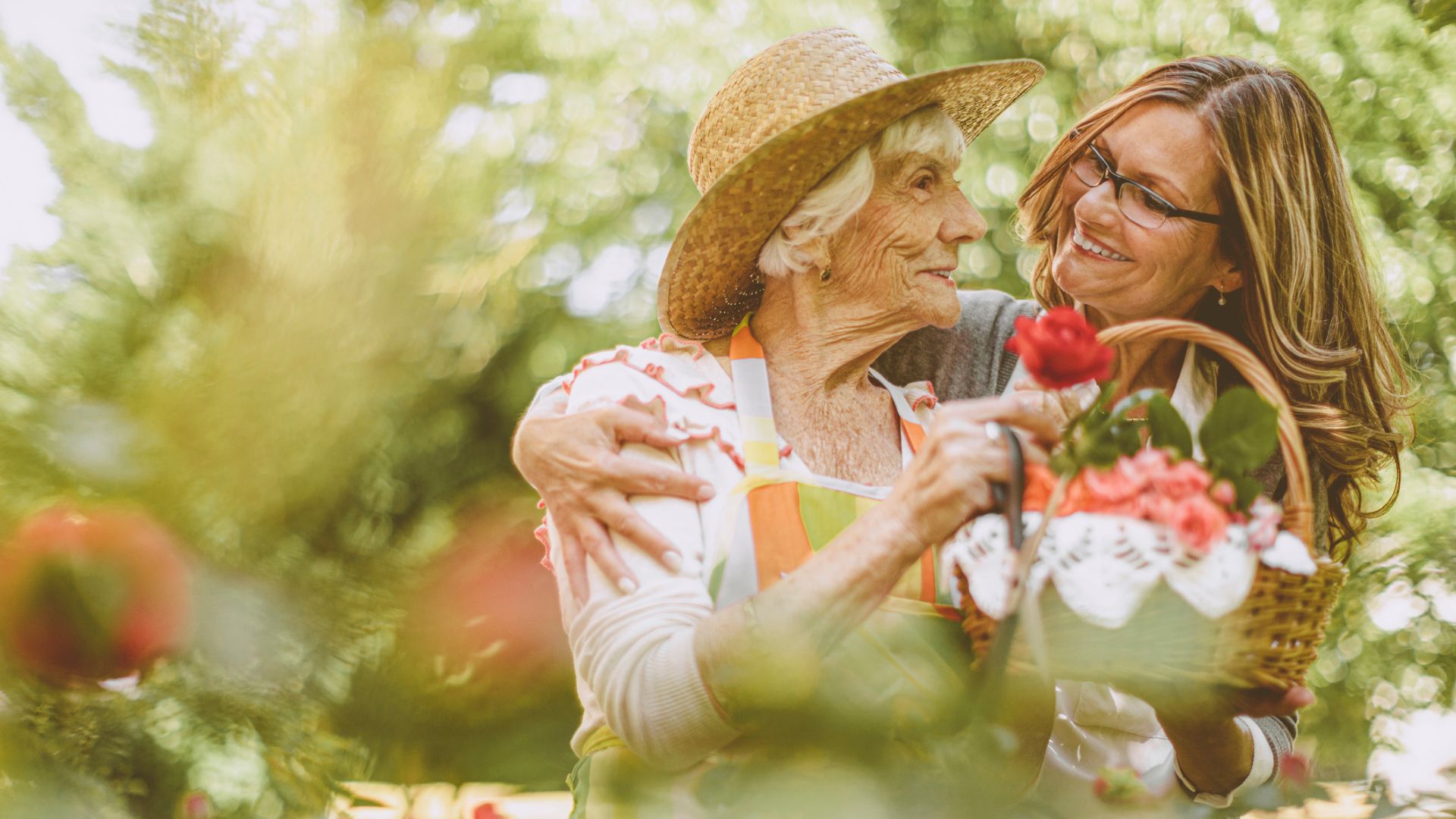 How to charm your in-laws: the ultimate guide to keeping the peace
How to charm your in-laws: the ultimate guide to keeping the peaceDiscover how to strengthen your in-law relationships, one thoughtful gesture at a time
By Natalie Denton Published